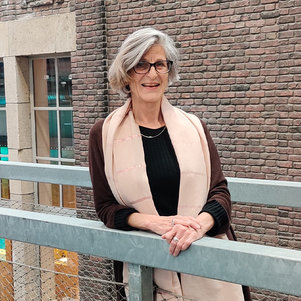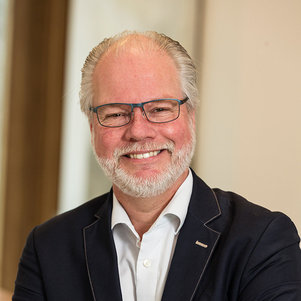"We won't solve the housing crisis by building 1 million houses"
Insights from the 1M Homes project
Nowadays, the housing crisis is high on the political agenda. But that was not the case in 2019. However, at TU Delft, the contours of the problem were already visible. Marja Elsinga (Professor of Housing Institutions & Governance) was asked to lead the 1M Homes project. The main question was: is it necessary to build an additional one million homes or can it be solved differently. Meanwhile, the project has come to an end. What were the striking insights? What accomplishments do project members reflect on with pride or what did they encounter? Together with steering committee member Gerard van Bortel (Assistant Professor of Housing Management), Marja looks back on the results. "We won't solve the housing crisis by building one million extra homes."
More and more collaboration
Marja: “What makes the 1M Homes project unique is that it was taken up with the four departments of TU Delft’s Faculty of Architecture and the Built Environment and took place at the interface between education and research. We started by asking simple questions: “Is there actually a housing crisis? If so, what has caused it? And can we come up with any solutions?” The search began at TU Delft itself; various disciplines could think of all sorts of solutions, so they felt the problem lay elsewhere. In the end, it turned out that we really needed each other for a total solution.” Gerard adds: “We talked to many different parties, from ministries to rental organisations and from other universities to market participants. This provided us with an extensive network that makes it much easier for us to find each other. There is more collaboration now than there was before 2019."
In the end, it turned out that for a total solution, we just desperately need each other.
Marja Elsinga
No overarching vision
Those involved in the 1M Homes project already realised back in 2019 that a substantiated overall vision for the housing crisis was lacking. This still has not been resolved. Gerard: “That wasn’t the ambition with 1M Homes anyway; we mainly wanted to reinforce the connections within TU Delft and the link between education and research, and we succeeded in doing so. Moreover, this integral approach has since become woven into our working methods within TU Delft. Contributing to such a vision is, however, part of the follow-up project Vision Team Wonen (Housing Vision Team) of which I am one of the project managers. What we do see is that a lot is going very well in the Netherlands, but things are happening slowly. We are not very adaptive in that respect and we work with a complex system that is difficult to change with the times.” Marja recognises that too. “The government also directs a lot towards the municipalities. Through the Association of Netherlands Municipalities (VNG), we are working on a vision for the future as Denktank Nederland 2040 (Think Tank Netherlands 2040), in which I am the initiator on the subject of housing. But these are complex issues, especially the combination of housing, spatial planning, the energy crisis and so on, which not all municipalities are able to respond to effectively due to a lack of capacity and knowledge.”
Moving forward
At the same time, Marja and Gerard see that a lot has changed since the beginning of 1M Homes. “The emphasis is still on building, building, building, but we’re also increasingly looking at the number of square metres already available per inhabitant of the Netherlands. That amounts to an average of 53, which is more than enough. How can we distribute those square metres better? Currently many elderly people live in large homes and are not able to move elsewhere easily. New construction now involves looking at efficient utilisation. And don’t forget legislation and regulations. Under the Participation Act and the General Old Age Pensions Act (AOW), there are cutbacks on benefits for people who share a home. This is a hugely perverse incentive as far as the housing crisis is concerned. Proposing solutions like this for the efficient use of existing residential space was unheard of before 2019.”
It is striking how much creativity there is when it comes to solutions. The challenge is mainly to make those innovations find a way into practice.
Marja Elsinga
Focus on the underlying value, not just the solution
Gerard is eager to add: “Society is changing too. People are much more willing to share things like a garden or common space. A knarrenhof (co-living concept for elderly persons) is a great example of this. And it also enables us to address another social problem, that of loneliness.” At the same time, there is still plenty to be done. “There is a lot of discussion about the right solutions to the problems. But we often have a poor grasp of the values underlying those solutions; they aren’t addressed. I think people often agree more than they think they do. Another challenge is to involve the target groups much more. The current and future residents, for example, who are often forgotten.”
Changing the system
One of the more enjoyable parts of the project, according to Marja: members of 1M Homes regularly participated in juries for competitions and contests. “It’s great to see how much creativity there is when it comes to solutions. The main challenge is to find a way to put those innovations into practice. People with ideas get caught up in rules and regulations.” This is precisely what the follow-up project Vision Team Wonen wants to contribute to. How can we at TU Delft make a difference through knowledge, innovations and education? There are many parties that want to cooperate so, above all, let’s find a way to change the system to create prospects.”
Moving toward solutions that have real impact
This is also where the challenge for the future lies, based on the recommendations of 1M Homes. Marja: “As far as I'm concerned, it’s going to be a matter of doing and thinking. Setting to work with people in the real world. What’s on their minds, how do we get that off the ground and what does it mean for the future? Returning to what we were talking about earlier, it’s about bringing together underlying values, policy and practice.” Gerard: “Exactly. And in particular looking at how we can contribute to those innovations through TU Delft. There are a lot of pilot projects, but not enough is learned by all those involved in the construction chain. At TU Delft can use our experience and knowledge to see how such ideas can grow into solutions that have real impact. With Vision Team Wonen we are now at the idea-gathering stage. In that process, we are building on the foundation laid by 1M Homes.”
More information
- To conclude and transfer knowledge, the 1MHomes project has created an online exhibition and a video.
- View Professor Marja Elsinga’s personal page here
The 1M Homes project was launched in 2019 and has now been finalised. The project had three goals: to combine knowledge from the four different departments and thereby promote new cross-disciplinary insights (1) and have them land in education (2) and public debate (3). One of the initial and fundamental insights was that the ambition to build 1 million housing units is open to debate.
Better use can be made of the existing housing stock, and a critical analysis of the housing system was also necessary.
More information can be found on the 1MHomes project page.


